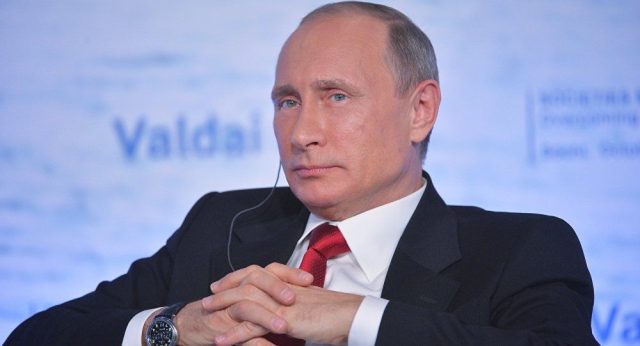There are currently lots of speculations about negotiations and possible diplomatic solution to military conflict in Donbas. I am however very skeptical about the success. Of course I am not diplomat, so hereafter is purely my personal opinion.
First of all, there does exists a reasonable deal, which would take into consideration reasonable (though not legitimate) Russian interests. I will not talk about details because talking about possible solutions weakens Ukrainian diplomatic position. However
- Russia will never peacefully accept any reasonable deal. Let me remind you that during the war in Yugoslavia, Serbian side had some reasonable interests and it was offered few very generous deals. All of those deals, usually brokered by EU, were turned down by Serbia. Only after military defeat (with tacit help from US) Serbs were forced into a deal, which was of course much less favorable for them. Unfortunately, you cannot count on Russian reasonableness, just as one could not count of Serbian reasonableness 20 years ago.
- Brokering a deal requires mutual trust between parties. Russia is not trustworthy and Russians very well know that. So they expect that naturally others (Ukraine, EU) will break the deal just as Russia did dozens of times so far.
- Therefore, for Russia the only way to achieve their unreasonable interests is to create quasi-Transdnistria or quasi-Abkhazia and directly influence Ukrainian politics or make Ukraine “failed country”.
To conclude, I think there is no other way apart from militarily to stop the Russian occupation.
So what should Ukraine do?
- It should limit Russian gains. From the military perspective, Russian superiority means that Ukrainian army has little chance on the open field, but making strong fortresses of large urban centers is generally a good idea. At least it worked well in Croatia (Vukovar, Osijek, Vinkovci, Gospić, Zadar, Dubrovnik). I do not know, though, considering the fate of Grozny, if this applies well to Ukraine too.
- The more subtle way to limit Russian gains is weakening Russian state from inside. The best effect is achieved by as large as possible export of coffins with Russian regulars. This will destroy Russian will for fight and change the public opinion. In Serbia, after few months, they had huge problems with mobilization despite the fact that Yugoslav (de facto Serbian) army intervention was de iure legitimate, as Croatia was still not internationally recognized.
- The second step is to liberate occupied territories. But this will take much longer time. From the military perspective, Ukraine will have to build a completely new army, which will take months, at least. The advances of army could be tested by occasional little local skirmishes at strategic positions, just as in case of Croatian army.
- Creating army will have to go hand in hand with further continuous weakening of Russian state from inside. I know that the international sanctions are weak, but in the long run they are very effective. After four years, despite military superiority, Serbia was no longer capable of wage any serious war, so after Croatian offensive they just simply gave up the Serbian “state” within Croatia. It is however important that international sanctions do remain intact and considering Russian political leverage it will take some effort from Ukraine and its allies.
Lamenting about the lack of international intervention won’t help. Help yourself and others will help you, so good leadership is of uttermost importance! So let me finish with the reference to Croatian leadership.
Wartime Croatian president Tuđman was and still is considered a controversial person. He was undemocratic and he probably have made few strategic or tactical mistakes. But there are two qualities of him that are undeniable. First, he had no illusions about enemy intentions and strength. And second, he had a vision that Croatia must and eventually will prevail. So he was not willing to accept rotten compromises and he was even prepared to do something “bad” in order to establish good final outcome. In this regard, he could be compared to Churchill 50 years before him. I hope your current Ukrainian leadership follow his and Churchill’s example.
Marko Pinteric









Page not found (404)